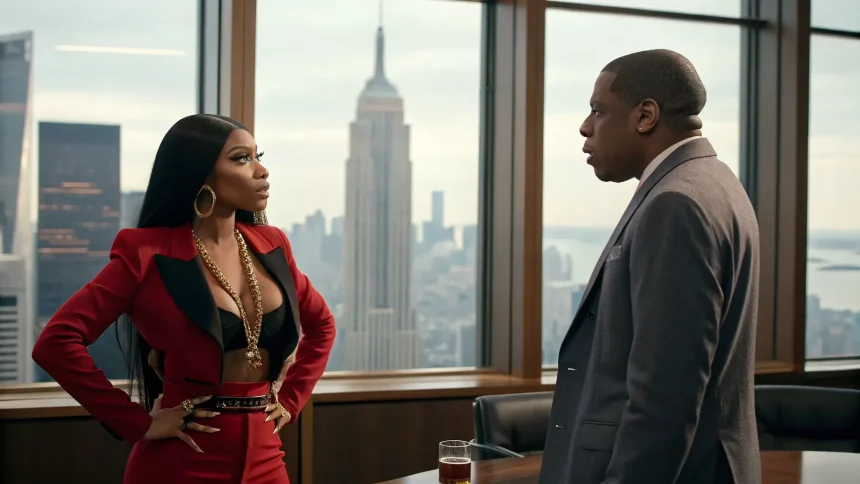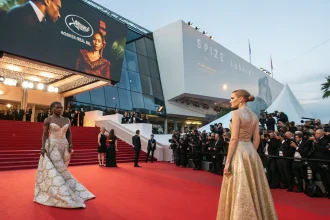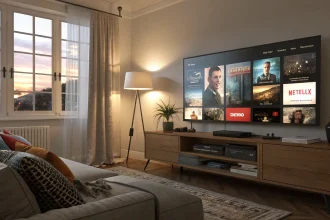Rap superstar Nicki Minaj has publicly challenged music mogul Jay-Z regarding alleged unpaid equity from the streaming platform Tidal. The “Super Bass” rapper didn’t hold back as she also voiced concerns about Jay-Z’s apparent influence over Super Bowl halftime show performer selections.
The dispute centers around Tidal, the music streaming service that Jay-Z acquired in 2015 and later sold a majority stake in to Square (now Block) in 2021. Minaj was among several high-profile artists who were announced as co-owners during Tidal’s splashy relaunch event, but according to her recent statements, she hasn’t received the financial compensation promised.
Tidal Ownership Controversy
When Tidal relaunched under Jay-Z’s ownership, it positioned itself as an artist-owned alternative to other streaming platforms. The service made headlines by bringing together music icons including Beyoncé, Rihanna, Madonna, Kanye West, and Nicki Minaj as stakeholders in the company.
Minaj’s recent comments suggest that despite the public presentation of artist ownership, the financial arrangements may not have materialized as promised. This raises questions about the structure of the deals made with artists who appeared at the launch and were presented as co-owners.
Industry analysts note that this dispute highlights ongoing tensions about fair compensation in the music streaming industry. While exact figures haven’t been disclosed, Minaj’s claims add to the growing conversation about transparency in music business dealings.
Super Bowl Halftime Show Influence
Beyond the Tidal equity issue, Minaj expressed frustration regarding Jay-Z’s role in selecting Super Bowl halftime show performers. Since 2019, Jay-Z’s entertainment company Roc Nation has partnered with the NFL to produce the halftime show and other NFL music events.
This partnership gives Jay-Z significant input into which artists take the coveted halftime stage. Minaj’s comments suggest she believes this arrangement has affected her own opportunities to perform at the high-profile event.
The Super Bowl halftime show represents one of music’s biggest platforms, with viewership regularly exceeding 100 million. For artists, a halftime performance can significantly boost album sales, streaming numbers, and overall visibility.
“The halftime show selection process has always been shrouded in some mystery, but having a single company with so much influence raises legitimate questions about access and representation,” said one music industry insider familiar with the situation.
Broader Industry Implications
Minaj’s public callout highlights several ongoing issues in the music industry:
- Questions about transparency in artist-facing business deals
- The concentration of power among a small number of industry figures
- The value of equity deals versus upfront payments for artists
- Access to major performance opportunities like the Super Bowl
Neither Jay-Z nor Tidal has publicly responded to Minaj’s statements. The rapper, known for her outspoken nature, has previously used her platform to address what she perceives as unfair treatment within the industry.
This dispute comes at a time when artists are increasingly vocal about business practices in the music industry. From streaming royalties to contract terms, performers at all levels are demanding greater transparency and fairness in how music business operates.
As one of rap’s most successful female artists, Minaj’s willingness to directly challenge an industry titan like Jay-Z demonstrates the changing power dynamics in music. Whether this public confrontation leads to resolution remains to be seen, but it has already sparked important conversations about equity—both financial and professional—in the music world.









